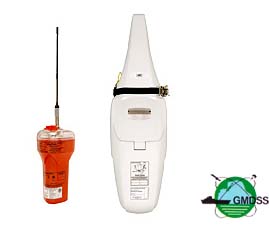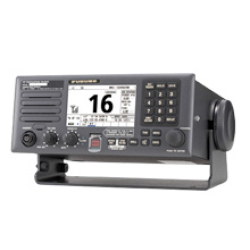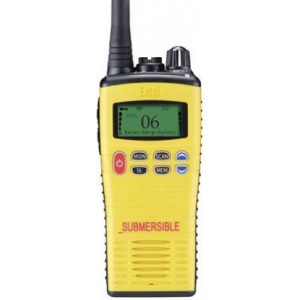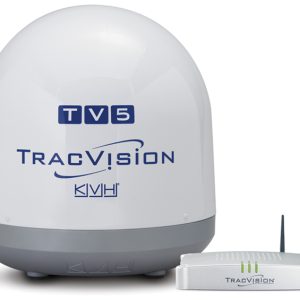EPIRB
The JQE-103 is a float-free compact type EPRIB designed to transmit the 406MHz emergency signal and the 121.5MHz homing signal in accordance with IMO/CCIR and COSPAS/SARSAT regulations. This equipment must be fitted to comply with IMO SOLAS regulations.
The 406MHz satellite EPIRB, thrown into the sea from a vessel or automatically released from the bracket in distress, automatically emits a 406Mhz emergency signal, which the COSPAS/SARSAT satellite receives and relays to a Local User’s Terminal(LUT) on 1.5GHz.
The LUT decodes the signal information including the location of the EPIRB and transmits it to a Rescue Co-ordination Center(RCC) for quick start of SAR operations by aircraft and vessels.





